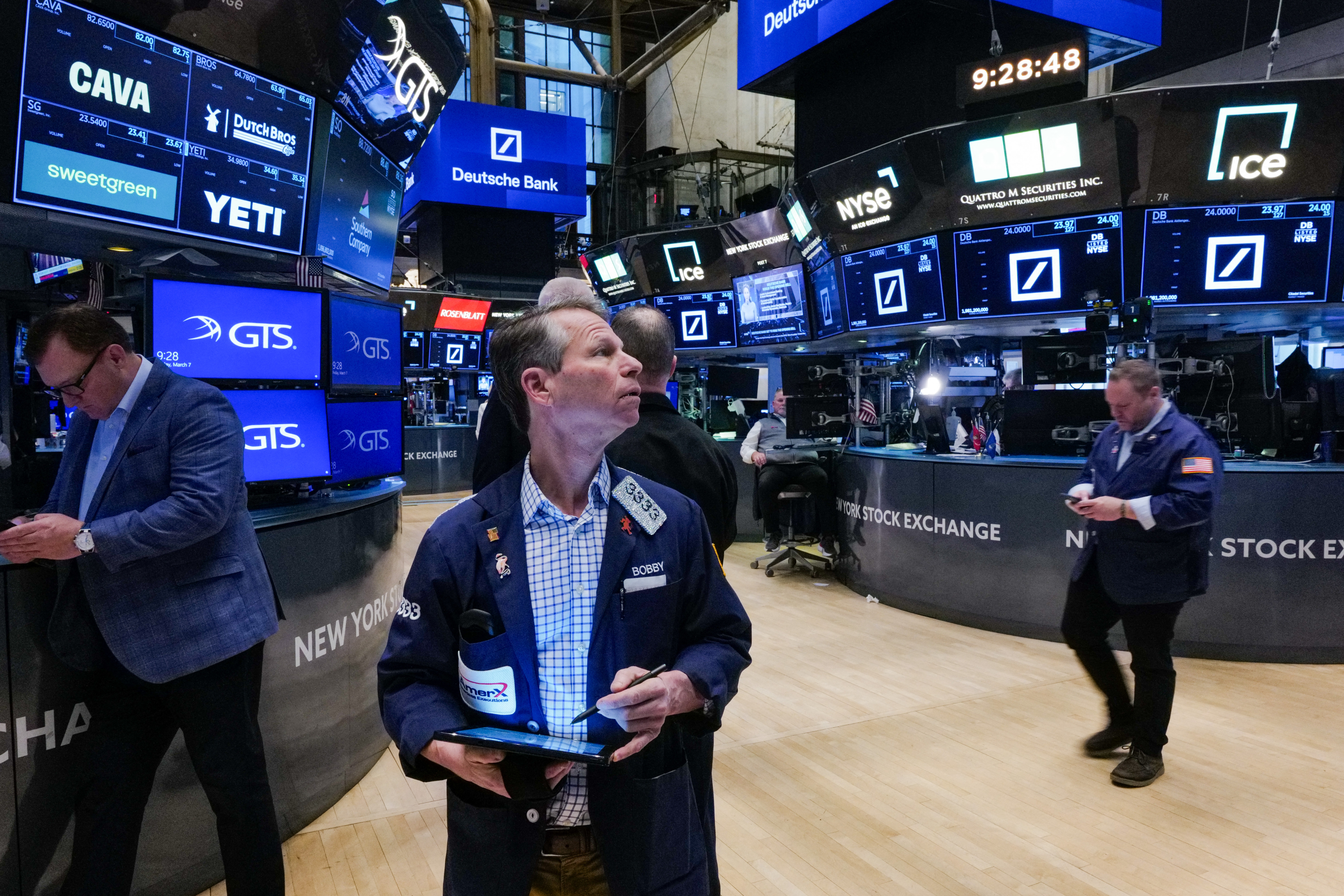The alert continues: Stock market reactions to Donald Trump's announcements / Analysis by Ricardo Ávila

The pause lasted barely three months. That's how long Donald Trump took before once again stirring up the waters of international trade with the announcement of a series of unilateral measures by the United States, consisting of increased tariffs, either against numerous countries or specific products.
Over the past week, the White House has again threatened Canada and the European Union, imposed a 50 percent tariff on copper imports, hinted at a 200 percent tariff on medicines, and sent letters to some twenty countries announcing its intention to increase the taxes on goods from those nations entering the United States. It also took aim at Brazil, Latin America's largest economy.
However, unlike April 2, the "Day of Liberation" event, the date on which the president shocked the world by putting his campaign promise into practice, this time not much happened. While on that occasion, Wall Street stocks plummeted due to the perception of an impending recession, what we saw this time was a new all-time high for the S&P 500 index on Thursday.
In fact, since the collapse of early spring, equity securities traded on the New York Stock Exchange have risen by nearly 30 percent on average. It's clear that investor sentiment is very different, as the panic of that time has been replaced by euphoria.
Still, some voices have called for caution. For example, Jamie Dimon, head of the well-known bank JPMorgan, stated that "unfortunately, there is complacency" on the part of large capitalists who are starting from a risky premise.
This is reduced to the term "Taco," which is an acronym for the English expression: Trump always chickens out , that is, he's afraid to follow through on his threats. A demonstration of this stance is that after practically suspending trade with China by raising tariffs to the stratosphere—something Beijing responded to in kind—the tycoon eventually reversed course and settled for a much more moderate approach.
"Taco" is an acronym for the English expression: Trump always chickens out, meaning he's afraid to follow through on his threats.
Aside from the above, the sanctions announced with such fanfare in April have largely been suspended. The new deadline is now August 1, but optimists believe it could be postponed as multiple capitals make it clear they want to close a deal with Washington, but concluding so many bilateral negotiations at once is not easy.

Donald Trump, President of the United States. Photo: Photomontage based on images from iStock and AFP
Under this interpretation, there's no need to worry so much about the US President's bravado because his bark is much more than his bite. Those who support this interpretation emphasize that the economic catastrophe predicted by so many has not materialized and that things are still relatively good in most parts of the world. As far as Uncle Sam's land is concerned, unemployment and inflation remain at moderate levels.
In boiling Concluding that "nothing happened here" could be a huge mistake. First of all, because a series of fundamental transformations have indeed occurred, which will have consequences in the medium and long term.
Such is the case with tariffs. At the beginning of this year, the average tariff on a product passing through any U.S. customs office was 2.5 percent of its value. Now, that burden has quadrupled, up to 10 percent. And if the announcements of recent days come to fruition, it could rise to 17 percent, starting next month.
It's true that consumers have barely noticed the increase in their wallets. One reason is that many local firms significantly expanded their inventories in early 2025, before the bar began to rise. Another is that many companies have sacrificed their margins, at least temporarily, in order to avoid losing customers.
However, evidence is emerging that this cushion is becoming increasingly thin. The volume of goods arriving at ports has been increasing, and they face a much larger bill when they are nationalized.
Eventually, the adjustments will come knocking on the door of households, whose confidence in the economy has plummeted. Numerous sectors show mediocre data, starting with real estate, which is in decline. As for domestic growth, projections indicate it will be half of what it was in 2024.
One of the major concerns among analysts is that a law recently passed by the United States Congress (the law is called "the big and beautiful") aims to skyrocket the federal deficit.
Among the immediate effects of the new reality is a jump in tax collections attributable to foreign trade, which have almost tripled. Greater revenue from this source is key to preventing fiscal accounts from becoming more disorganized, as one of analysts' major concerns is that a law recently passed by the United States Congress (the law is called "The Great and the Beautiful") aims to skyrocket the federal deficit.
This means there's a motivation for tariff adjustments that goes beyond trade. With a deficit budget equivalent to more than 6 percent of the size of the US economy, the room to cut import taxes becomes almost nil. In other words, even if different winds blow in the future, the foundations of Trump's trade policy are likely to stand the test of time.
In descent Meanwhile, the rest of the world has begun to feel the effects of Washington's decisions. A few weeks ago, the World Bank released its most recent projections, which can be described as disturbing. According to the multilateral institution, global GDP growth this year will be just 2.3 percent.
To find a similar figure—aside from the extraordinary event of the pandemic—we must go back to 2008, when the international financial crisis erupted. A slowdown is underway everywhere, resulting in fewer job and business opportunities.
Aside from the immediate damage caused by the tariff hikes, which cancel orders from multiple sources, the most negative effect is uncertainty. Countless projects are on hold, which has also affected the relocation of plants, such as those that planned to move from Asia to Latin America in order to take advantage of free trade agreements whose preferences are up in the air.

Traders work on the floor of the New York Stock Exchange. Photo: AFP
On the other hand, international financial conditions have tightened due to greater risk aversion, the World Bank emphasizes. This translates into less liquidity, making it more difficult for companies and countries to renew their maturing obligations.
No interest rate relief is anticipated either. The Federal Reserve Bank in Washington believes the feasibility of a short-term cut is low, even if it provokes complaints and threats from the White House.
Even the dollar's weakness isn't appreciated. It has lost ground significantly against other currencies, as well as against many emerging economies, including the Colombian peso. The depreciation of the greenback makes exports to the US market less competitive (which is not the case with the euro).
At the same time, the geopolitical landscape is complex, as tensions have not abated anywhere. The war in Ukraine continues, as do conflicts in the Middle East. Although Israel's attack on Iran—which Tehran responded to with a barrage of missiles and drones—has been put on hold, it would be naive to believe the emergency is over.
The fact that oil prices remain above $70 a barrel suggests that fears about a potential disruption in crude oil supplies persist. More broadly, commodity prices are at moderate levels and appear to be heading downward, even as they react to unexpected events.
For example, coffee prices rose by more than two percent in a single session when it was learned that Brazilian coffee exports could be subject to a 50 percent tariff when entering the U.S. market. Still, the coffee price is far from its peaks of a few months ago, affected, among other things, by the perception that demand will not be as strong.
Play the cards Navigating such a challenging environment isn't easy for any country, large, medium-sized, or small. The difficulty in predicting how Donald Trump will act begins with those who still consider themselves his close allies, as was the case with the United Kingdom, whose arrangement was deemed unsatisfactory.
Part of the problem is that the criteria the White House uses to threaten or punish in the trade arena transcend the objective. While in the past some of this medicine was tried in defense of U.S. national interests, now the range justifying any unilateral action is much broader and extends into the emotional realm.
Both Canada and Mexico, and more recently Brazil, have been in Washington's crosshairs for their alleged lack of cooperation in the fight against drugs or for the actions of their respective legislative and judicial branches. In response, some have opted for confrontation, while others have opted for appeasement, always seeking to keep channels of dialogue open, as Beijing did in its time.

Supporters of the former president of Brazil, Jair Bolsonaro. Photo: AFP
Drawing on the lessons learned from others can help Colombia play its cards when faced with threats such as the upcoming certification of the country's efforts in the fight against drugs. Given the bottleneck in bilateral negotiations, the chances of reaching an understanding with Bogotá on a purely commercial level are low, which is why it is important to insist on a cool head and the inconvenience of verbal provocations.
Newton's third law, which states that for every action there is an equal and opposite reaction, has also been commonly applied in diplomatic relations. Now, disproportionate responses from Washington are becoming more common, especially against adversaries considered more vulnerable.
Returning to the global arena, perhaps the most positive development to date is that, aside from occasional disagreements, no nation has opted for the path of outright protectionism. In this regard, fears of a widespread trade war have been dissipating, although some have placed obstacles in the way of certain Chinese products that are now more abundant.
That said, there's no reason to lower the alarm level. As has been the norm since Trump took office in late January, the risks of a deterioration induced by his decisions, seriously affecting the global economy, persist.
The stock markets may have shown indifference last week to the string of messages from the White House, but that doesn't mean the clouds predicting a major storm have dissipated. Not at all.
eltiempo




